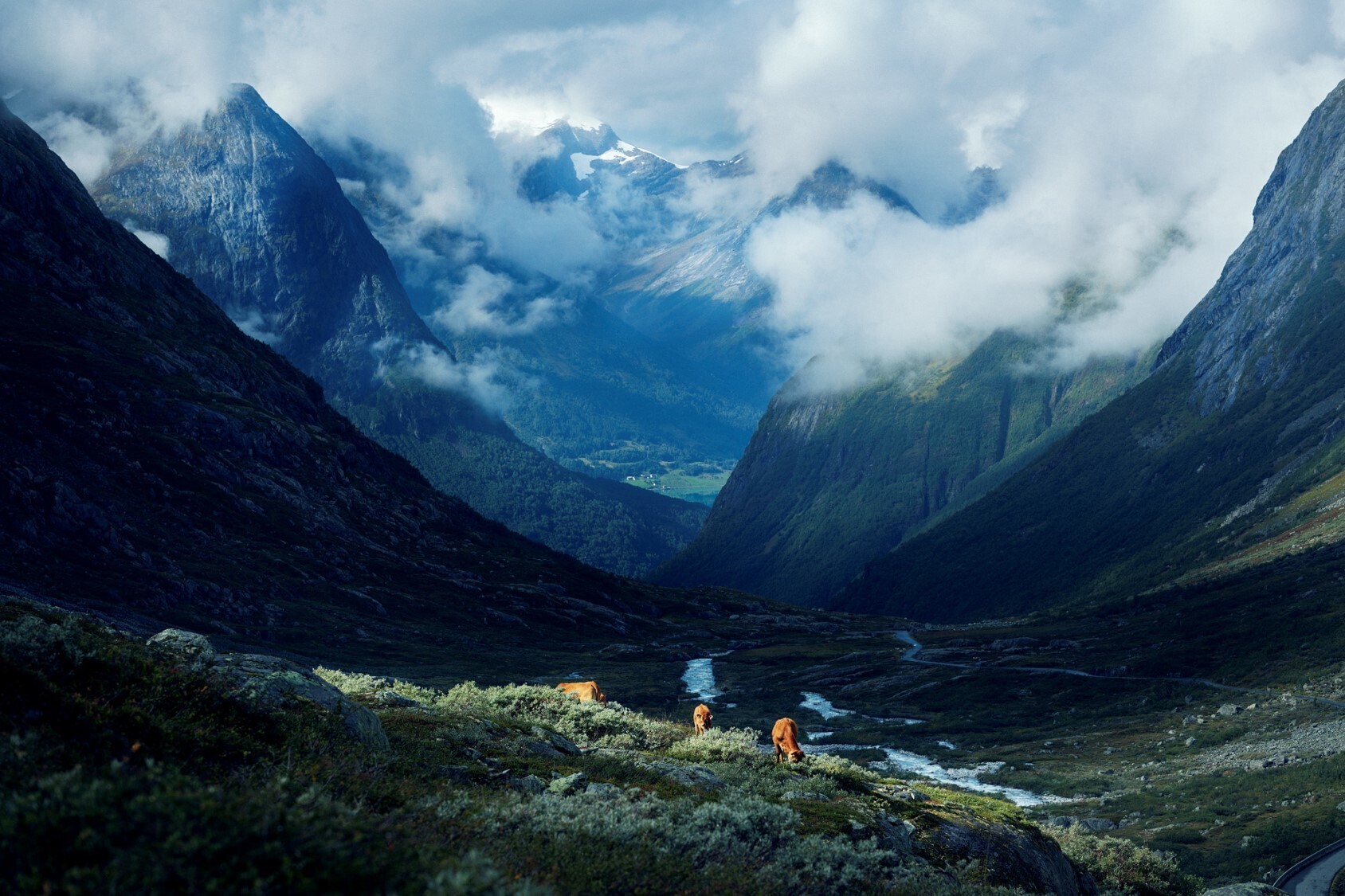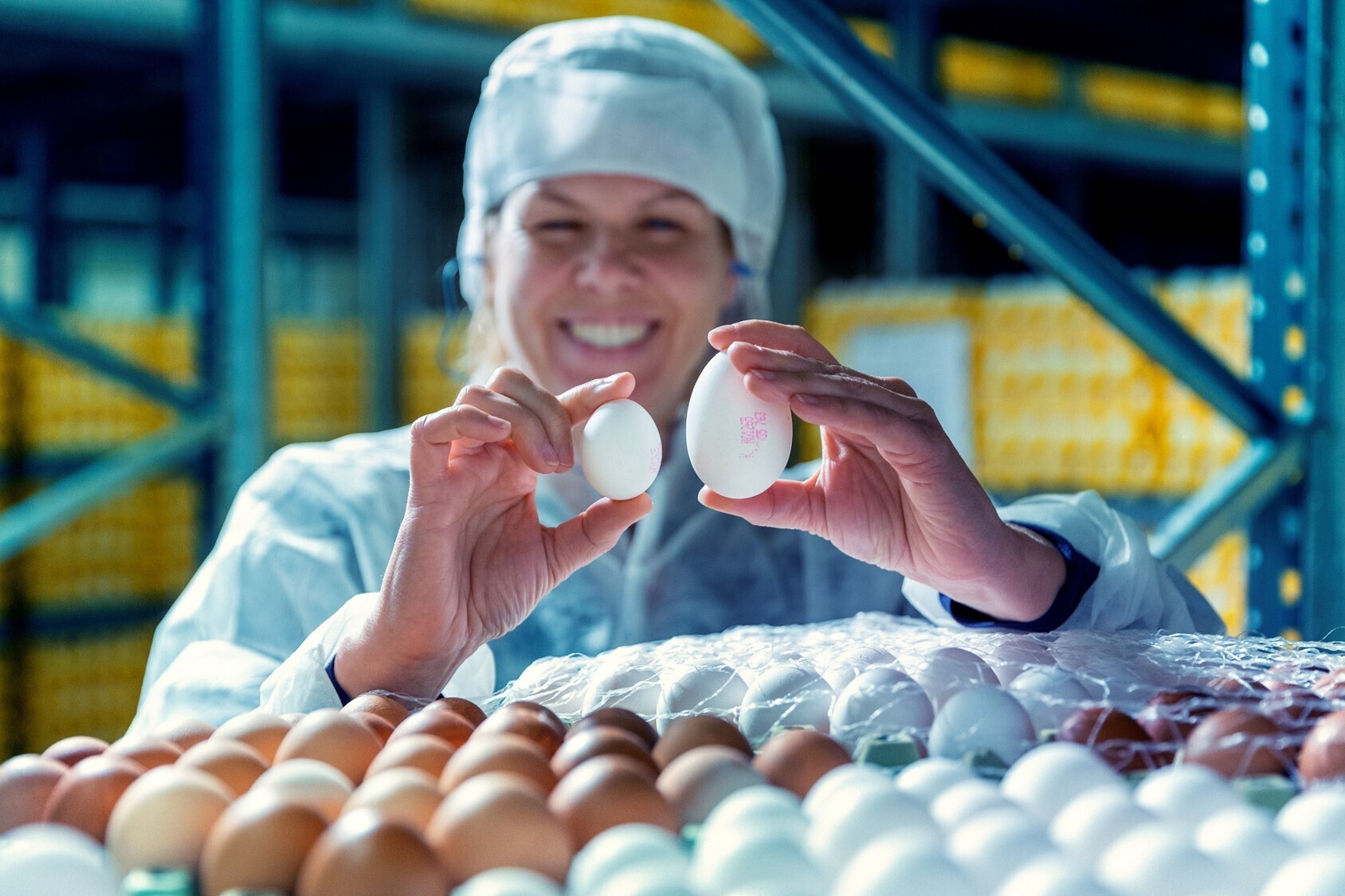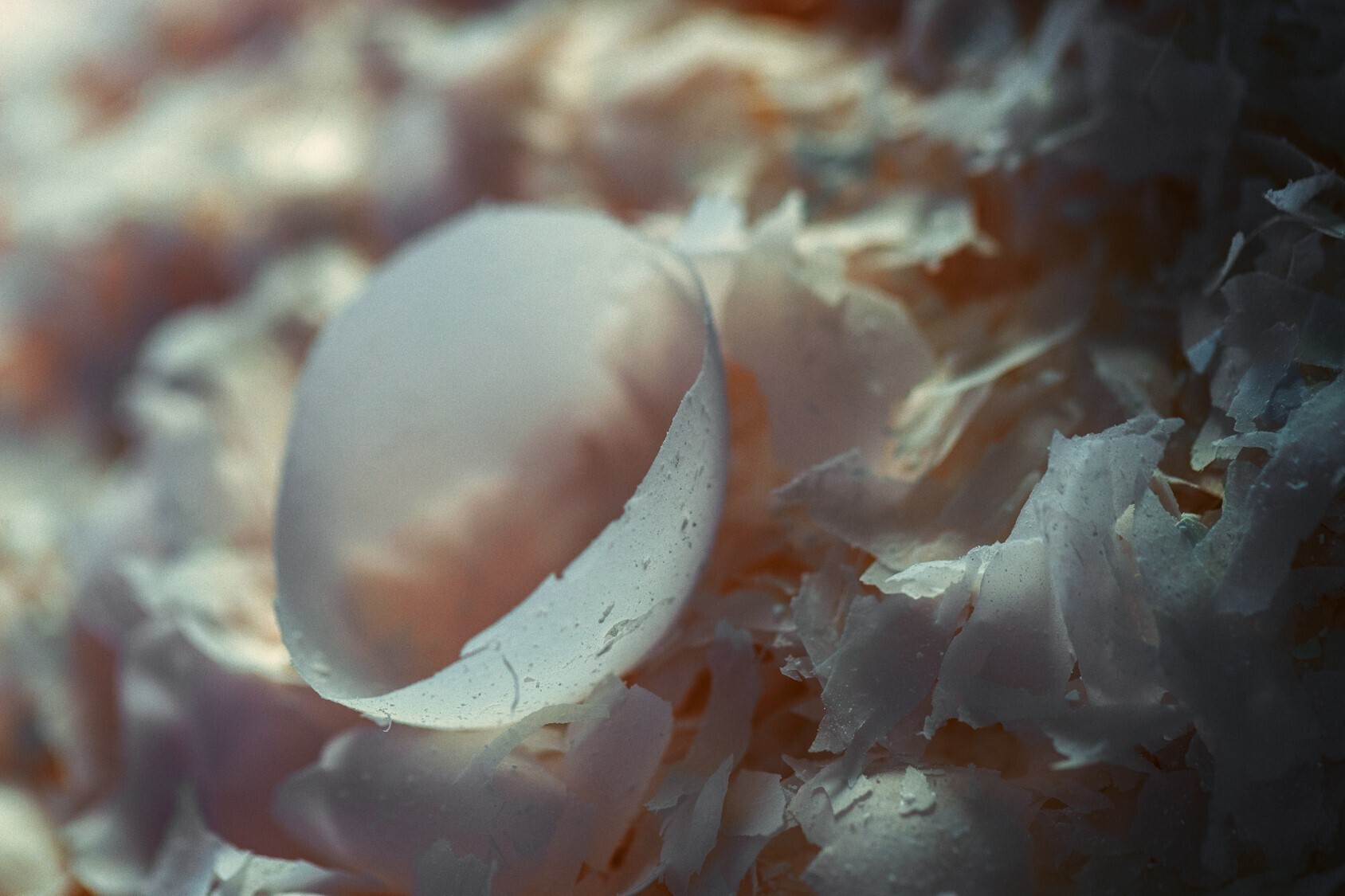Sustainable quality products from pure and safe commodities
Clear air, clean water, and pure nature. Production adapted to natural conditions and based on local resources. A high level of competence and a continuously focus on quality. Healthy animals that are well cared for. The commodities that form the basis for our production are of world class quality.
Pure nature
Norway is situated far north, and has a cold climate. At the same time, ocean currents and wind bring warmth to our country, and makes the climate milder than one would expect. We have plenty of water and excellent water quality. Long, bright days in summer contribute to good growing conditions for plants. Vegetation changes with variation in temperature, rainfall and soil quality. From coastal heathland to coniferous forests in the inland and birch and willow in the mountains.
Production adapted to natural conditions
Animal husbandry and grazing has had an influence on the Norwegian landscape for thousands of years. Grazing, haymaking and other forms of cultivation have resulted in new types of vegetation, and in a varied and rich landscape.
Only 3% of Norway's land is arable. Forests and mountains cover most parts of our country and as much as 95% is classified as outfields, of which nearly half is suitable for grazing. Two thirds of the arable land are best suited for grass production, while a third is used to produce grain for food and feed. Approximately 2% of arable land is used for production of potatoes, vegetables, fruit and berries. Large feed resources are also available in the outfields as uncultivated semi-natural vegetation in the forests and mountains. During the summer months, about 2.4 million animals are released into these outfields, mostly in the alpine zone.
Use of local resources, focus on quality and collaboration for the common good
In Norway, there are more than 40,000 farms scattered across the country. Most of them are privately owned family farms. More than 30, 000 of these farms have animal husbandry. In an international perspective, the average Norwegian farm is small with a limited number of animals. The education and competence level of producers is high. There are good production, quality and traceability systems in place that help the entire sector to monitor the status within the sector and continuously work towards further improvement. The Quality system in Agriculture (Kvalitetssystemet i Landbruket, KSL) is used to monitor compliance with laws, regulations and demands from customers.
Norwegian agriculture is well organized, has good implementation capability, and is characterized by openness and collaboration between industry, the authorities and research institutes.
Healthy animals that are taken well care of
We have a cold climate, and farms are small and scattered. This contributes to lower disease pressure, and it makes it easier to maintain a good overview of the health status of all the animals.
Animals in Norway are among the healthiest in the world. Norway's antibiotic use is the lowest in Europe and one of the lowest in the world. Norway’s livestock industry, together with veterinarians and farmers, has been working systematically to reduce the use of antibiotics in food-producing animals, both through preventive health work, breeding and responsible use of antibiotics.
In Norway, there is extensive active surveillance regarding terrestrial and aquatic animal diseases, feed and food safety. These programs contribute to healthy animals and safe food.
Animal welfare is an important part of the responsibility for the care of animals. Norway has a tradition of looking after animal welfare. Rules and regulations regarding animal welfare on farms, during transport and at the slaughterhouse are very strict. Any deviations are reported immediately to the food safety authorities.
Pure and safe commodities
Norway has many natural benefits that help prevent diseases, in addition to a strong focus on preventive health. As a result, animal health is very good in Norway, and the use of antibiotics is minimal. It is not allowed to use GMO or growth hormones in animal feed. All feed concentrate is heat treated. The use of pesticides is minimal.
There is a strong focus on preventing bacteria to spread from animals to humans. There are strict hygiene routines and infection controls on the farm, in the slaughterhouse and during food production.
These are some of the factors that allows Norway to produce some of the purest and safest food in the world. This production provides us with raw materials of the highest quality that we in Norilia can further refine.










